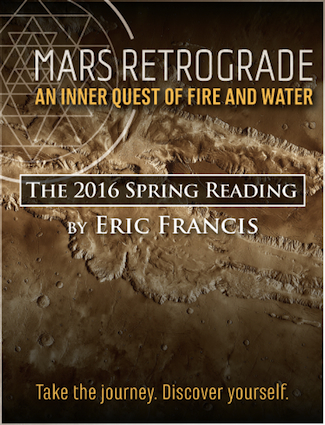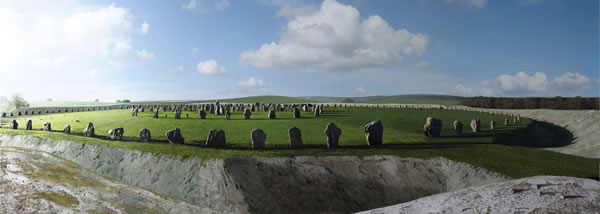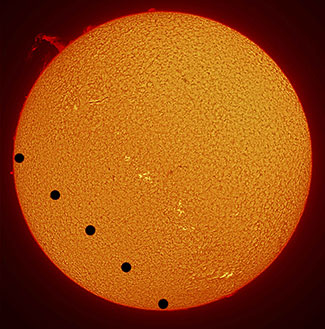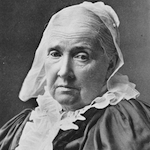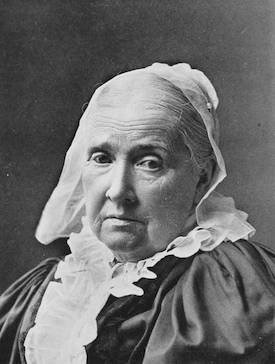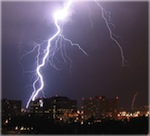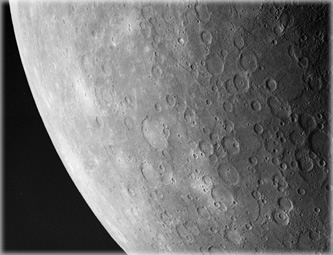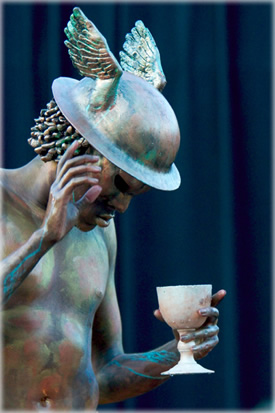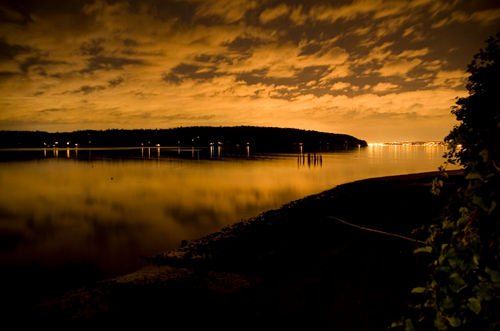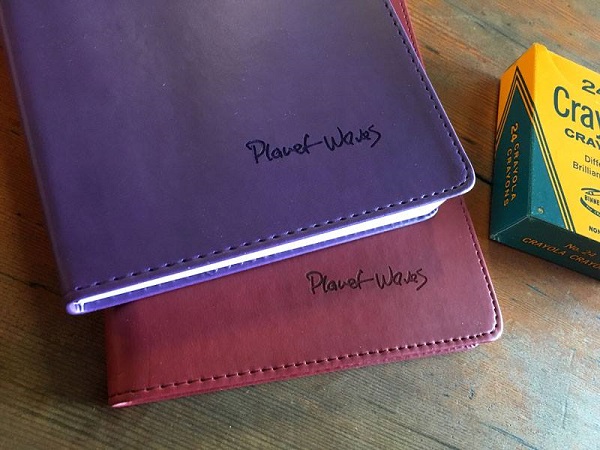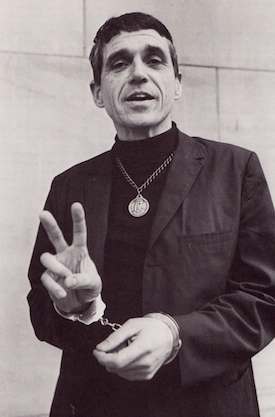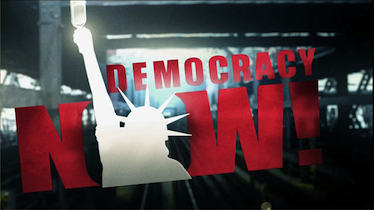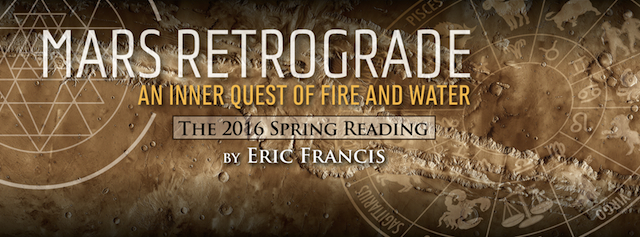Editor’s Note: I was looking for an article by Eric featuring Sedna, since the Sun makes its annual conjunction to that complex minor planet on Sunday, when I found this delightful trio of essays/letters by Eric and astronomer Mike Brown. Brown is part of the Caltech team that recently determined the existence of Planet Nine. The pieces below first published in the Feb. 1, 2008 members’ edition. — Amanda P.
Dear Friend and Reader:
MIKE BROWN is one of the great astronomers of our day. I say this because he and his team have made some of the most significant discoveries in recent astronomical history — in particular, Eris and Sedna. Yet what is more, he has a gift for giving planets names that are bold, original and astutely call attention to crucial world issues. Read those links on Eris and Sedna and you’ll see what I mean.
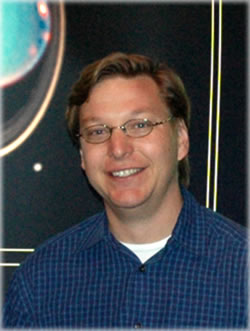
Photo: Mike Brown poses with Uranus, the first planet discovered by science. Photo courtesy of Wikipedia.
His team’s 2005 discovery of Eris turned the world of planetary astronomy upside down the next year, when the International Astronomical Union (the IAU, the scientists who officially control names and categories of planets) defined the word “planet” for the first time. This was the meeting in Prague that we made such a fuss about (here is a link to one article, and another to refresh your memory, and here is the Wall Street Journal’s coverage featuring yours truly).
In Small World Stories, I joked that Kirsti Melto (a minor planet astrologer you read regularly on these pages) and I feel that Mike is an astrologer but doesn’t know it yet. I say this because he is connected to the archetypal world through his work as a scientist, and that work involves planets and mythological figures. He is in tune with the times — the first job of an astrologer.
I knew he loved astrologers. As we noted in the dedication to The Spiral Door, he looked at his watch the moment he discovered Eris, because he knew astrologers would ask the time.
He even told this to The New York Times! It is difficult to overstate what a bold thing that is to say. At the very least, it reveals he’s a maverick with a great sense of humor. At best, he reveals himself as someone who, in Gemini fashion, is open to both sides of the story and thus has an actual interest in the truth.
Then last weekend, he came out with the article you’re about to read below. It is extraordinary because, unlike most of his colleagues, he does not immediately assume that astrologers are all a bunch of scammers. This is an unfortunate prejudice that I’ve encountered too often, but then astrology does its part to earn this reputation — a topic for another article.
Mike has an interesting concept of how astrology works. He describes it as a kind of story that we follow, which he regards as a form of fiction. This s precisely how I describe it in the Planet Waves terms of service — personally applicable mythical fiction. He prefaces his comments by saying he does not accept that the planets have “control” over our lives. In this sense, he’s in accord with the majority of honest Western astrologers, whose work emphasizes choice and not fate.
He sees the common ground we share. He has an open mind, and is open to a dialog. This is rare, and if you believe in history, it is historic. Here’s his essay, with my reply published below. May his words not only ring through the centuries, but also open a door to a discussion that we, as in astrologers and astronomers, need to have right now.

Three pictures that shook the solar system. Discovery images of the dwarf planet Eris, which led astronomers to reorganize their concept of the solar system in the summer of 2006. The three images were taken 1-1/2 hours apart on the night of Oct. 21, 2003. Eris can be seen very slowly moving across the sky over the course of three hours. Photos by Mike Brown.
I (Heart) Astrologers
By MIKE BROWN
Professor of Planetary Astronomy
Caltech University
PLEASE DON’T tell any of my fellow astronomers, but I love astrologers. Really I do.
Don’t get me wrong. I have absolutely no belief whatsoever in the proposition that the positions of planets or stars or moons or anything else that is moving across the sky has or ever has had any sort of control over your life, your actions, or your choices. Zero. Really.
So if I don’t believe in what I must assume would have to be considered a central precept of astrology, how can I possibly claim to love the practitioners? Let me count the ways.
Astrologers care about the sky and the positions of the stars and the moon. I care about the sky and the positions of the stars and the moon. Astrologers try to understand patterns in the orbits and motions of the planets and determine their meaning. I try to understand patterns in the orbits and motions of the planets and determine their meaning. In a broad sense, we do many of the same things; it’s just that our methods are different.
Astrology and astronomy are brothers with roots deeper than just the first five letters. Until perhaps the Enlightenment they were inseparable. Copernicus, who made one of the greatest conceptual leaps in human history, pulling the earth out of the center of the universe and replacing it with the sun, was a dedicated astrologer, calculating astrological charts with as much fervor as trying to understand the paths of the planets. It’s not hard to understand why he would feel that some connection should be there. I don’ t think anyone can watch the rhythms and pulses of the movements of the planets and sun and moon and not somehow get a gut feeling that there is somehow meaning in all of that beauty, precision, and symmetry.
But from their common upbringing, the brothers split in adulthood. They each retained their common interest in the sky, but with thoroughly different ways of looking at it. Astronomy moved to the purely objective realm of descriptive and predictive reality. It moved to science. And a wondrous science it is. I can go outside tonight and look up to see the bright glowing star Betelgeuse, the red orb in the upper corner of constellation Orion, and then I can tell you a pretty good version of the entire story of its birth in a cloud of gas and dust, its long existence as a smaller and cooler star with hydrogen atoms fusing together in the deep interior, and its recent expansion to form ball of gas the size of the orbit of Mars. That we have been able to determine this story at all, simply from looking at the feeble light from these little points in the sky, is as improbable as it is incredible. When I see Betelgeuse at night and stop to think these thoughts I am left in awe.
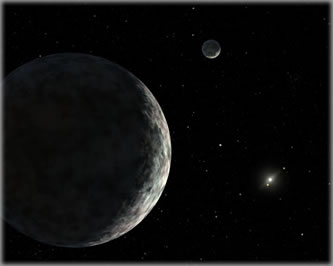
Artists concept of the view from Eris with Dysnomia in the background, looking back towards the distant Sun. Credit: Robert Hurt (IPAC).
So what can astrology offer that can even come close to matching? It can’t tell me anything, I don’t think, about my history or my future or my personality or my pitfalls. Or about anyone else’s. Isn’t it therefore worthless, or even potentially dangerous? I don’t think so. Astrology is the brother who kept the fascination with the sky but rather than growing an interest in science kept its interest in humanity. Scientific astronomy, for all of its awe-inspiring, mind expanding, and just simply amazing discoveries, leaves people and their consciousness out of the picture. Astronomy involves people looking up at the heavens, but the heavens are never looking back. Astrology, in contrast, never removed that connection between the sky and the people.
But but but, you protest, there is no connection between the sky and the people. The heavens do not, in fact, look back. And, while you are scientifically correct, you are culturally incorrect. You are thinking literally, but you need to think literarily. Good astrology can be like good literature. Good literature builds a world that is not the real world but teaches us more about ourselves than we would ever learn by simply staring in the mirror. No real King Lear ever had a trio of daughters to split his kingdom amongst, nor wandered insane on the heath, but do we disdain Shakespeare for writing about it? No, we read, and we think about children and parents, we think about truth and loyalty, and scheming, and we learn more about ourselves and our world. We’re left enriched by stories that are not true.
Again, I have to plead: don’t get me wrong. I’m certainly not saying that all astrology is equivalent to Shakespeare, but neither is all of the rest of the fiction writing out there. The in-flight magazine that I currently have in front of me has both a short story and an astrology page. I would rate them equal quality examples of their genres.
Here’s a snippet of my in-flight horoscope (I’m a Gemini, perhaps explaining my ability to accept the dual nature of astronomy/astrology) for the month of January:
As your attention is consumed by an array of projects, you may spread yourself too thin. Remember to stop and take a breath, if for no other reason than to garner some perspective.
OK. I don’t need an astrologer to tell me that, but it’s hard not to read it and, why, yes, stop and take a breath and garner a little perspective. It’s not such a bad idea.
A quick perusal of the short story, a few pages earlier, gives a remarkably similar take home message, spread out, instead, over about three pages. After reading both of these I am now convinced: I think I will stop and garner some perspective, at least if I can finish a few of these other projects first.
So where are the Shakespeares of astrology? I will admit to not knowing if they exist at all. My astrological reading is only passive; occasionally someone will send me something and in a spare moment I will pick it up and I just might find it a bit intriguing. Here, for example, are some thoughts about Eris by Henry Seltzer, writing in The Mountain Astrologer:
The astrology of Eris seems to be related to the no-holds-barred fight for continued existence that is fundamental in all natural processes, and to taking a stand for what one believes, even if violence is involved. As the sister of Mars, the God of War, Eris willingly sought the battle. There is a side of nature that is quite harsh, a struggle for survival; this struggle is an essential part of the human condition as well, for we are still half animal. Nature can be viewed in a rosy light, as it was in the hippie era of the Sixties, Bambi innocently drinking from a little stream. But underlying this beauty is the possibility of sudden death at any moment, since all of nature’s children need to eat. Eris is related to this principle of violence as a natural component of existence and to the concept of the female warrior that embodies it, especially the feminist struggle for rights in a patriarchal society.
As a general discussion of the national psyche circa late 2007 this passage is not at all bad. It covers the war in Iraq, global warming, and the Hillary Clinton candidacy all in the discussion of one name. It certainly does not require literal belief that the naming of an object in the sky is the actual cause of any of the things discussed.
But what is the point of astrology if you chose to read it figuratively rather than literally? Again, you could ask the same question of King Lear. You could ask the same question of the Bible. And you wouldn’t. To ask it is to miss the point entirely.
Here’s a question you should ask though: why tolerate the existence of astrology, with the danger that people might actually take it literally, with the danger that it might confuse and distort science, with the fear that real cause and effect will become confused, when real literature abounds? Why read pithy but relatively generic snippets of advice and pretend they are somehow connected to a particular constellation along the zodiac? Why read more extended essays purporting to be an in-depth analysis of how a recently discovered ball of rock and ice far from the earth affects all of humanity? The answer? There is no reason. I personally prefer my literature to be of higher quality, to make me think and feel more. Feel free to follow my lead. But if you do chose to read it, read it for the reason that I can’t help but love it. Astrology is not just figurative literature about humanity. Astrology cares about the sky. The astrologers who occasionally correspond with me love to hear about new solar system discoveries, figure out orbital relationships and patterns, and speculate about what else might be out there and how everything fits together. I do all of these things, too. I then take these thoughts and move on to think literally about their scientific implications. The astrologers take these thoughts and move on to think figuratively about what these mean for humans. But we, astronomers and astrologers, start in the same spot, with an intense interest in the sky. To me, that matters.
Astronomy and astrology are brothers. Brothers don’t always do the same things or make the same choices. But when they maintain their initial ties to where they came from, their connection cannot help but stay strong. What is not to love?
My Reply to Mike Brown
Sunday morning Jan. 27, Mike wrote to me and asked if I liked his essay. I initially wrote a response in 10 minutes before an early-morning photo session. Here is my refined response, which I have edited a bit for detail, clarity and point of view.
Mir or rather Mr. Mike Brown!
Kirsti Melto sent your essay to me last night, as excited as a little kid. First of all, I am moved that you took up the subject. You admit astrology exists and that you have heard of it, etc. :-))
I love your essay — for many reasons, including the fact that (like Phaedrus, in the Dialogs of Socrates) you get the discussion going.
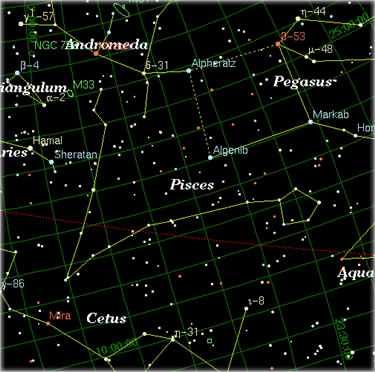
Constellation Pisces image created with XEphem Software.
Is it not ridiculous that science does not at least credit astrologers with providing continuity, and with beginning the search in the days LOOONGGG before the existence of science? Science was born of the Enlightenment, just a few hundred years ago. Astrology is thousands of years old. Many names used by science were bestowed in ancient days by astrology. Let’s be friends!
I had planned a reply, at least in concept. Here is a sketch.
Both astronomy and astrology are intellectual maps of consciousness. It matters not that most astrologers skip the telescope and the science of it (minor planet astrologers though tend to know as much about the science as many astronomers, I have noticed).
The GESTALT of it all is that we are both responding to the times in which we are alive. We agree on one thing in exactly the same language: that to astrologers, the planets and their symbols (whether the name or the orbital elements) METAPHORS. They are not usually viewed as a “cause” — certainly not with something like Quaoar. In our official definition of astrology, Planet Waves describes it as a kind of personally applicable mythical fiction.
What we have in common is the search for truth and meaning — and the sky.
Vis a vis the quality of astrological literature — that depends entirely on the writer, Mike. I regret that there are not too many good astrology writers, which tends to inform the world that we are all typing rather than typing, to borrow from Truman Capote. The astrology you get is as good as the astrologer you get. It is not easy to convey the complexity of an astrological chart into clear writing. It takes dedication. Because many so-called astrologers are bottom trawlers feeding on human misery, not the quest for knowledge, it’s not really necessary to go too deep into the ideas in order to get the attention necessary to maintain a business.
The search for meaning extends through recorded history. The sky — the greatest mystery we can actually look at and see with our eyes — is going to be the first place most people with any sensitivity begin that search. And there, astrologers and astronomers are not brothers, but twins. Or, as one of your readers posted to your website, “Instead of looking at the two as brothers, I prefer to see astrology as the very old mother that gave birth to scientific astronomy only two or three hundred years ago.”
For my part, I wish that astrology would pay more attention to what you and your colleagues are doing (it’s still lagging terribly), and fall in love with the science and history of these planets. I for one am deeply moved to be alive, and to be an astrologer, in this incredible time of discovery.
The dance along the artery
The circulation of the lymph
Are figured in the drift of stars
Ascend to summer in the tree
We move above the moving tree
In light upon the figured leaf
And hear upon the sodden floor
Below, the boarhound and the boar
Pursue their pattern as before
But reconciled among the stars.— T. S. Eliot
Burnt Norton from Four Quartets
Yours & truly
![]()
P.S. I was up in Woodstock the other night talking to some guys, herbalists and scholar types, young and fiery, and one of them said — this whole thing of looking at the stars so carefully was started for navigational purposes, by mariners. Woooosh! I felt like I understood all at once, and I can’t believe I forgot that bit of history/lore! It was a practical thing. They had to get from place to place, and the stars were there, and they noticed the planets drifting among them like actors on the cosmic stage.
Then, with time on their hands and because everyone loves a good story, they started seeing dramas in the stars, and the myths of the zodiac were born…as facets of human consciousness, within the pool of psychic and intellectual creation. This is one of the gifts we inherit from antiquity.
Science came a long thousands of years later and “made sense” of what they were seeing, deconstructing it in the process. To our discussion, science brings the rational meaning, the facts, and theories; and astrology brings, or starts the discussion off, with the philosophy, the story, the process of getting from one place to another, in our ships or in our minds.




